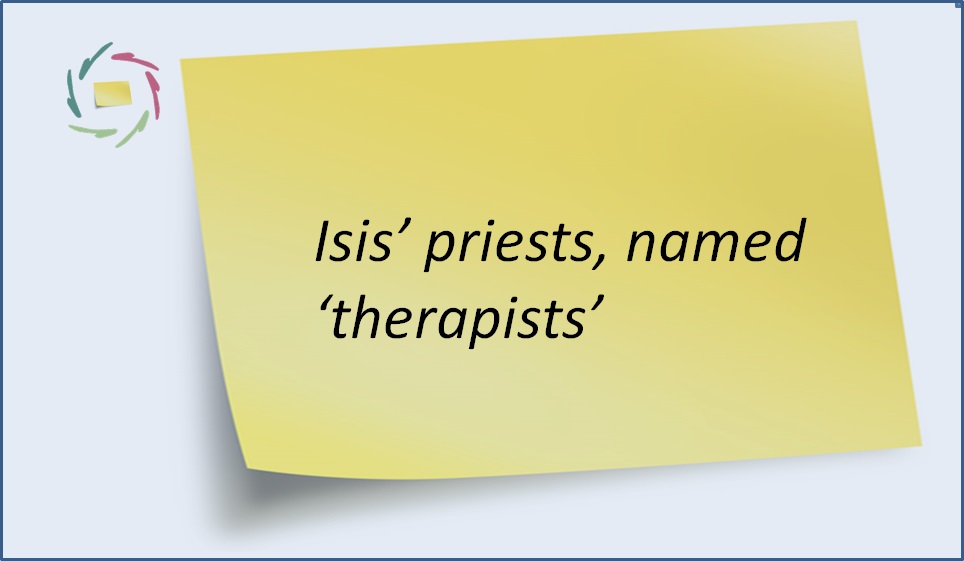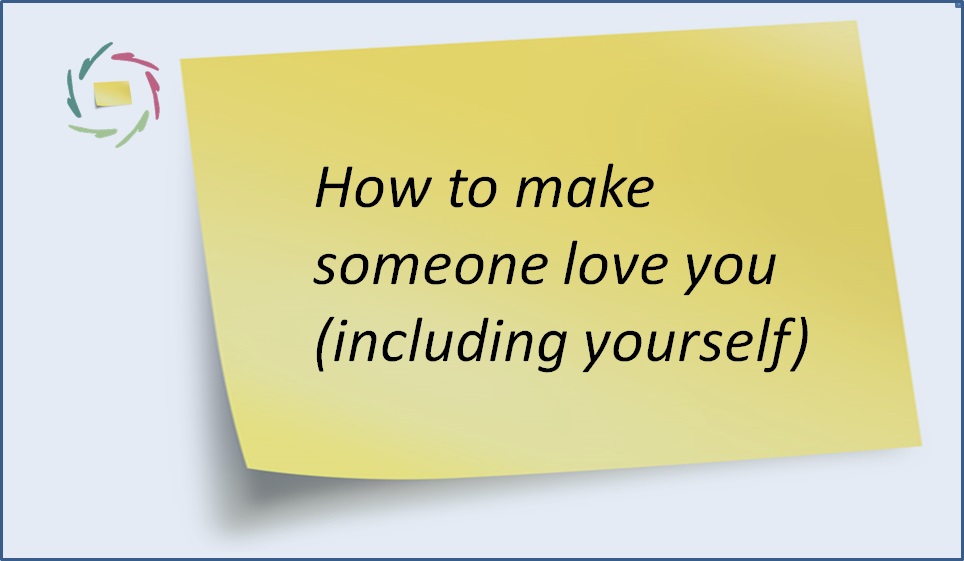57. Isis’ priests, named ‘therapists’

Do you like etymology? I do. It brings a sense of broad cultural togetherness, in space and in time. It also keeps at the forefront the fact that culture was not made in one day. Western culture is truly the result of millennia (as is of course Eastern culture too, let’s not get into competition). Indeed, etymology can sometimes be really surprising in showing the connectedness of ideas, as in the case of the word ‘therapy’.
◊◊◊
Modern therapists may like the idea that the word comes from ancient Greek. It gives one a sense of ancient grandeur, like ancient temples, theatre plays, Hippocrates, Galen and consorts. Indeed, ‘therapy’ comes from ‘therapos’, an ancient Greek name derived from ‘serapis’, a popular (then) god of health and healing. This was actually the name the Greeks gave to the even much much older Egyptian god Osiris, god of both upperworld and lowerworld. That is to say: of everything. One might say in very modern translation: consciousness and the subconscious.
◊◊◊
If one looks very deeply, one encounters still much of Osiris in the present-day West, as well as of Isis, his favorite sister ànd wife (they’re gods, remember). She too was a ‘healer’, as well as a ‘witch’. Anyway, she was a source of inspiration for Western witchcraft during many centuries and actually, she even seems to be coming back as such. Especially in the first centuries after Christ, many temples all over the Roman empire were devoted to Isis. The priests of these temples were called ‘worshippers of Osiris/Serapis’ or ‘therapeutai’. People went to these temples with all kinds of health problems to get a ‘sleep cure’ which lasted +/- one month and during which indeed they were given sleep-provoking drugs.When awake, the priests were there to infuse them with enchanting music, all kinds of ‘secret’ rituals, sessions of explanation of their clients’ dreams etc. For those who wanted to go even further, there were real ‘mystery initiation courses’ of which we know little. They really were ‘mysterious’. The initiated ones were forbidden to talk about this to the non-initiated, maybe even under threat of their very lives.
◊◊◊
By the way, Osiris and Isis also had a son, whom the Romans called ‘Hermes’. He functioned in his free time as a go-between for gods and men. Of course what the gods have to say is always kind of ‘hermetic’. Etymology everywhere.
◊◊◊
A cure in an Isis temple must have been a thrilling and powerful event. One can imagine that it really shook many people to the core, provoking life changes as well as changes in the attendants‘ psycho-neuro-immunological system (for the non-initiated in present-day medical hermetic slang, let’s say: their ‘body’). So was it really effective? Well, certainly in my view, mind-body medicine of today could have learned a lot of them. It is therefore very unfortunate that terribly much of that ancient knowledge has been lost during those post-Christ centuries of ‘the big clash’ between religions. As always, the victor has made history his own at the detriment of the defeated. In our case, the victor was Christianity. And this victor has been ferocious beyond imagination.
◊◊◊
So the ‘therapeutai’ live on at least in the name they gave to our therapists. Underlying, there is of course much more involved than the name. But for now… let’s keep a bit of mystery, shall we?
◊◊◊


